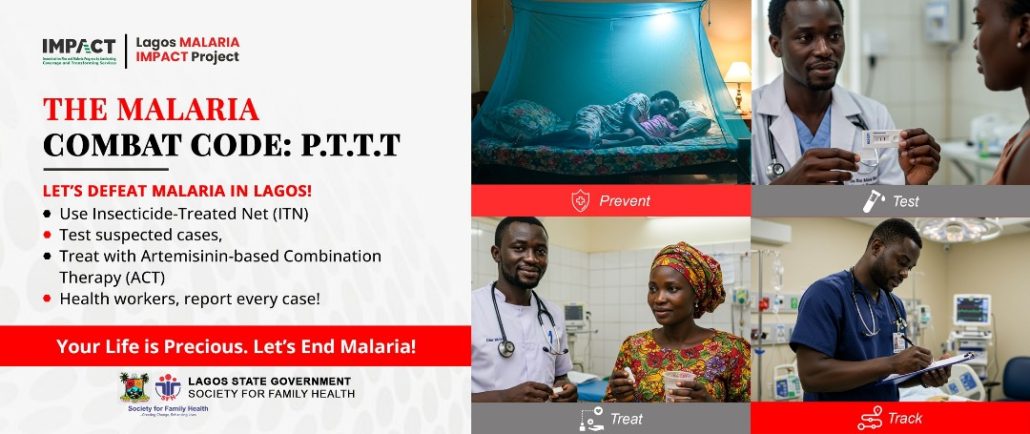
…State, SFH, World Bank launch aggressive media campaign to drive elimination
Lagosians have been warned to stop treating malaria without proper diagnosis, as more than 90 per cent of fever cases in the state are now caused by conditions other than malaria.
This was the central message at the launch of a Public Enlightenment and Media Campaign on Malaria Prevention and Management, unveiled by the Lagos State Government in partnership with the Society for Family Health (SFH) and the World Bank.
The campaign, part of the World Bank–funded Malaria IMPACT Project, marks a shift in Lagos’ strategy from control to pre-elimination, with prevalence rates in the state now hovering around 1 per cent—down from 15 per cent in 2010.
At the media launch held in Ikeja, Managing Director of SFH Nigeria, Dr. Omokhudu Idogho, described the initiative as “a defining moment in Lagos’ public health journey.” He said the campaign was anchored on four key pillars—Prevent, Test, Treat, and Track—designed to empower both citizens and health workers with tools to make informed health decisions.
“Our aim is not just awareness but action. Lagosians must understand that testing before treatment is non-negotiable. Over 90 per cent of fever cases today are no longer malaria, and self-medication only worsens the problem,” he cautioned.
The campaign, Dr. Idogho said, will saturate the information space with messages across radio, television, billboards, buses, bulk SMS, social media, and direct community engagement. He also urged residents to complete their prescribed doses of Artemisinin-based Combination Therapy (ACTs) to avoid drug resistance.
Deputy Managing Director (Programmes), SFH Nigeria, Dr. Jennifer Anyanti, highlighted the project’s deliberate focus on the informal health sector, where more than 60 per cent of Lagosians first seek treatment. She explained that community pharmacies and Patent and Proprietary Medicine Vendors (PPMVs) would be trained and equipped to conduct malaria testing and ensure proper referrals.
“By engaging the informal sector, we are ensuring that no one is left behind. Whether you walk into a health centre, a private clinic, a pharmacy, or even a patent medicine shop, you will get the right diagnosis and the right care,” she said.
Dr. Anyanti also underscored the role of data and surveillance in sustaining progress. “Accurate reporting from the community is the backbone of accountability. It shows us where malaria is happening and allows us to respond quickly,” she noted, while urging residents to adopt preventive measures such as environmental sanitation and use of insecticide-treated nets.
Lagos State Malaria Elimination Programme Manager, Dr. Abimbola Osinowo, said the campaign demonstrated what could be achieved through political will and cross-sector collaboration.
“This is not just about malaria; it is about saving lives and building healthier communities. Malaria elimination is not a dream—it is within reach,” she affirmed.
She stressed that sustained behavior change remained the toughest hurdle, noting that consistent messaging across media and community platforms was crucial.
Dr. Osinowo called on citizens, religious leaders, and civil society to take ownership of the fight. “This cannot be left to government alone. Keep your surroundings clean, sleep under treated nets, demand testing before treatment, and complete your medications. Together, we can make history with a malaria-free Lagos,” she said.
Stakeholders at the launch pledged to amplify the “Prevent, Test, Treat, and Track” message across the state, with optimism that Lagos could serve as a national model in the journey to eliminate malaria.